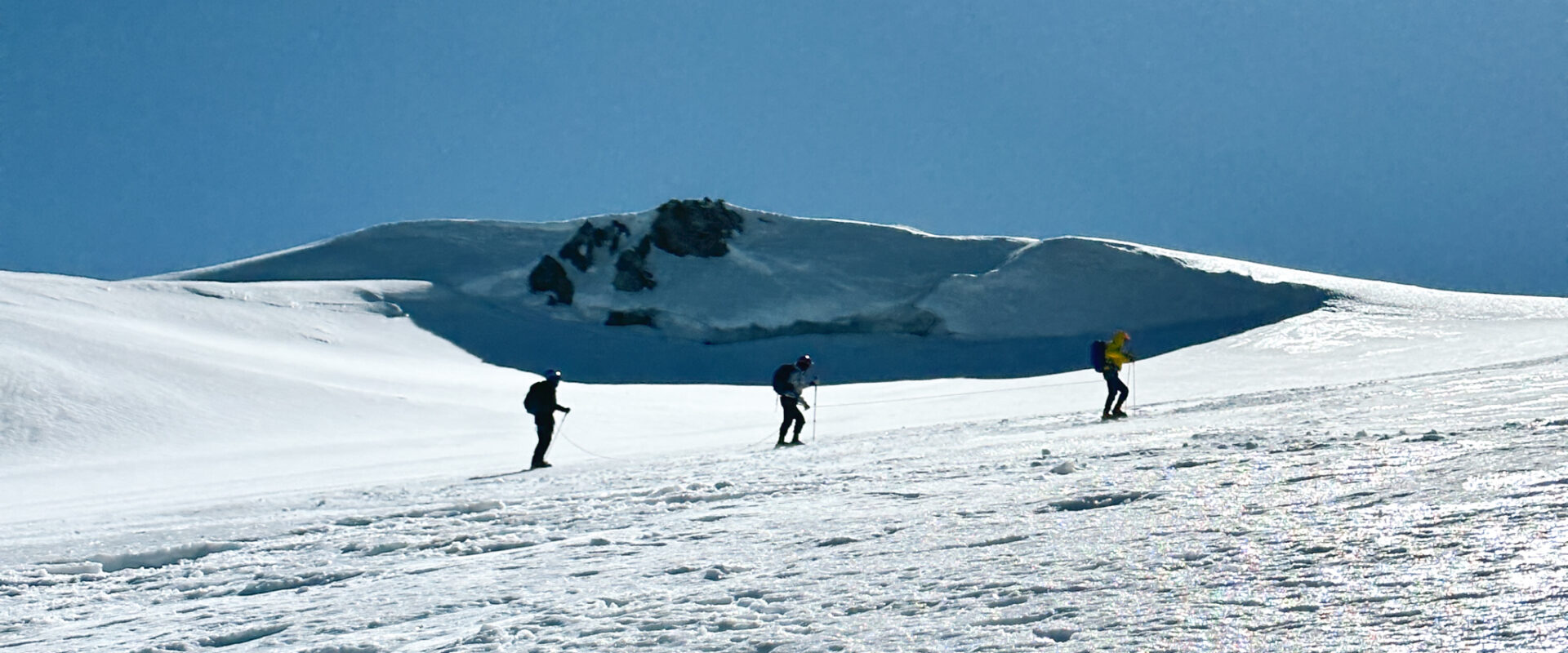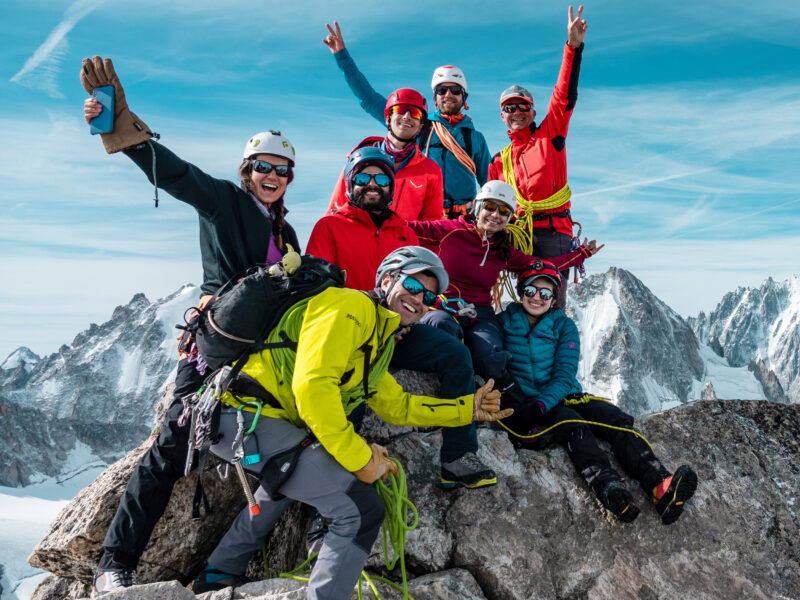BY Rami Rasamny | February 25 2025
How to be an Efficient, Adaptive & Reactive Mountaineer

Mountaineering is more than just physical endurance and technical skills—it is a discipline that requires efficiency, adaptability, and the ability to react to ever-changing conditions. Mastering these three skills early on is crucial for safety and success in the mountains. Whether you are learning how to start climbing mountains, taking a basic mountaineering course, or seeking advice from a mountain, these principles remain key.
Efficient: Move Smart, Stay Light
Efficiency in mountaineering means moving with purpose while conserving energy. This involves:
- Carrying only what is necessary – Mountaineering essentials should be kept light to improve endurance and agility.
- Balancing speed and endurance – Moving too fast can lead to exhaustion, while moving too slow increases exposure to hazards.
- Minimizing unnecessary stops – Keeping a steady pace helps maintain warmth and reduces the time spent in risky areas.
- Using proper technique – Learning to walk efficiently on varied terrain, whether on snow, rock, or ice, helps conserve energy for the long ascent.
Adaptive: Adjust to Conditions, Team, and Circumstances
Mountaineering demands adaptability in every aspect. Climbers must adjust to:
- Changing weather conditions – Snow, wind, and sudden storms require shifts in clothing, pace, or even route choices.
- Team dynamics – Each climber has different strengths, weaknesses, and pacing; working together ensures collective success.
- Altitude and personal health – Training for new alpinism and proper acclimatization are key, and climbers must recognize when to slow down, hydrate, or adjust plans based on how they feel.
- Unpredictable terrain – Conditions change throughout an expedition, requiring constant assessment of snowpack, rock stability, and avalanche risks.
Reactive: Assess and Adapt the Plan
Mountaineering is not just about following a fixed plan—it’s about reacting to evolving situations:
- Monitoring progress – Regularly assessing the group’s pace and energy levels ensures the plan remains realistic.
- Adjusting timing – Weather, visibility, and fatigue dictate when to move or when to pause for rest.
- Knowing when to turn back – The ability to reassess and make difficult decisions, such as retreating when conditions deteriorate, is a hallmark of a skilled mountaineer.
- Responding to unexpected events – Whether it’s an injury, gear malfunction, or a sudden change in terrain, quick thinking and problem-solving are essential.
Final Thoughts
Mastering efficiency, adaptability, and reactivity is what separates a novice from a seasoned mountaineer. Whether you’re figuring out how to learn mountaineering, enrolling in a mountaineering for beginners program, or preparing for your first big expedition, these skills determine success and safety. In the mountains, the ability to move smartly, adjust fluidly, and react decisively makes all the difference in how to start mountain climbing successfully.
About The Author
Rami Rasamny is the founder of Life Happens Outdoors, a premium adventure travel community dedicated to transforming lives through curated outdoor experiences. A mountaineer and entrepreneur, Rami has led teams on some of the world’s most challenging peaks, from the Alps to the Himalayas. His mission is to make adventure accessible, transformative, and safe for all who seek to push their limits and Come Back Different.
About Life Happens Outdoors
At Life Happens Outdoors, we believe in the power of nature to transform lives. As proud members of the Adventure Travel Trade Association (ATTA) and the World Travel & Tourism Council (WTTC), our team of certified guides and outdoor professionals is committed to the highest standards of safety, sustainability, and excellence.
Discover more about our story and mission on our Meet LHO page, or explore our curated adventures such as the Tour du Mont Blanc Trek, the Climb of Kilimanjaro, and Chasing the Northern Lights.















